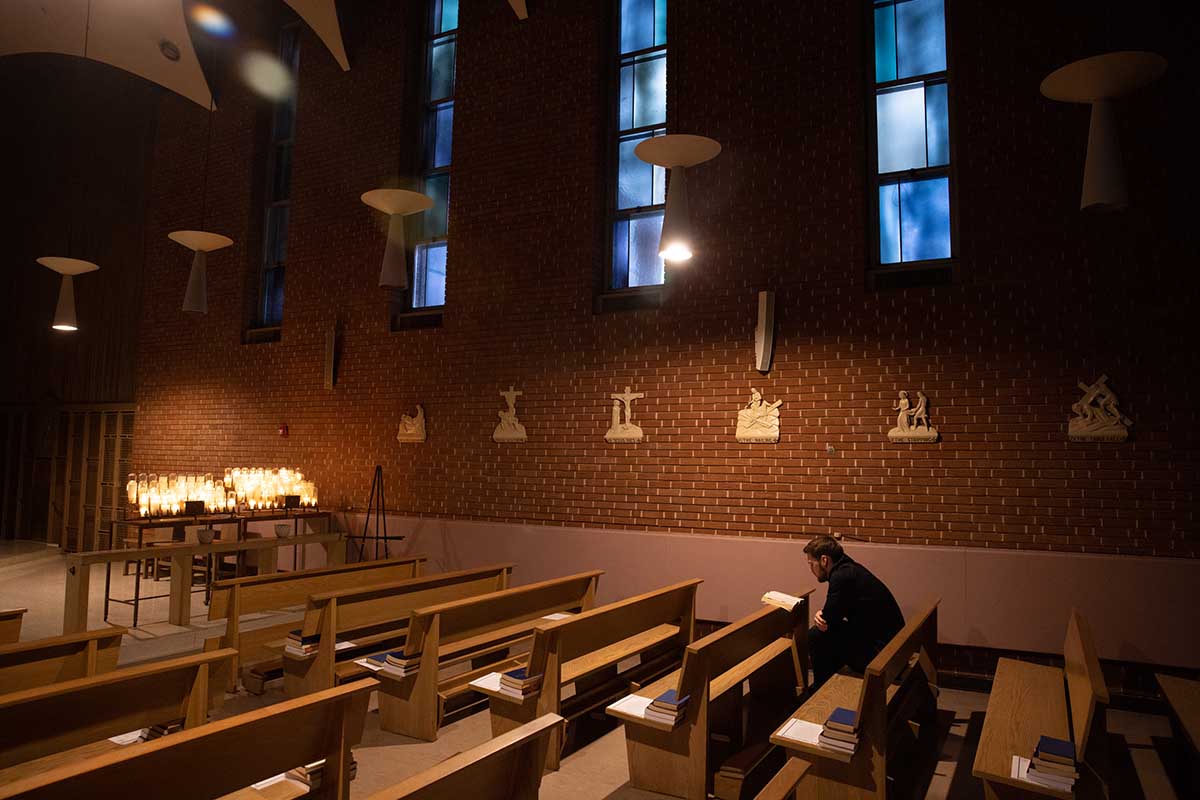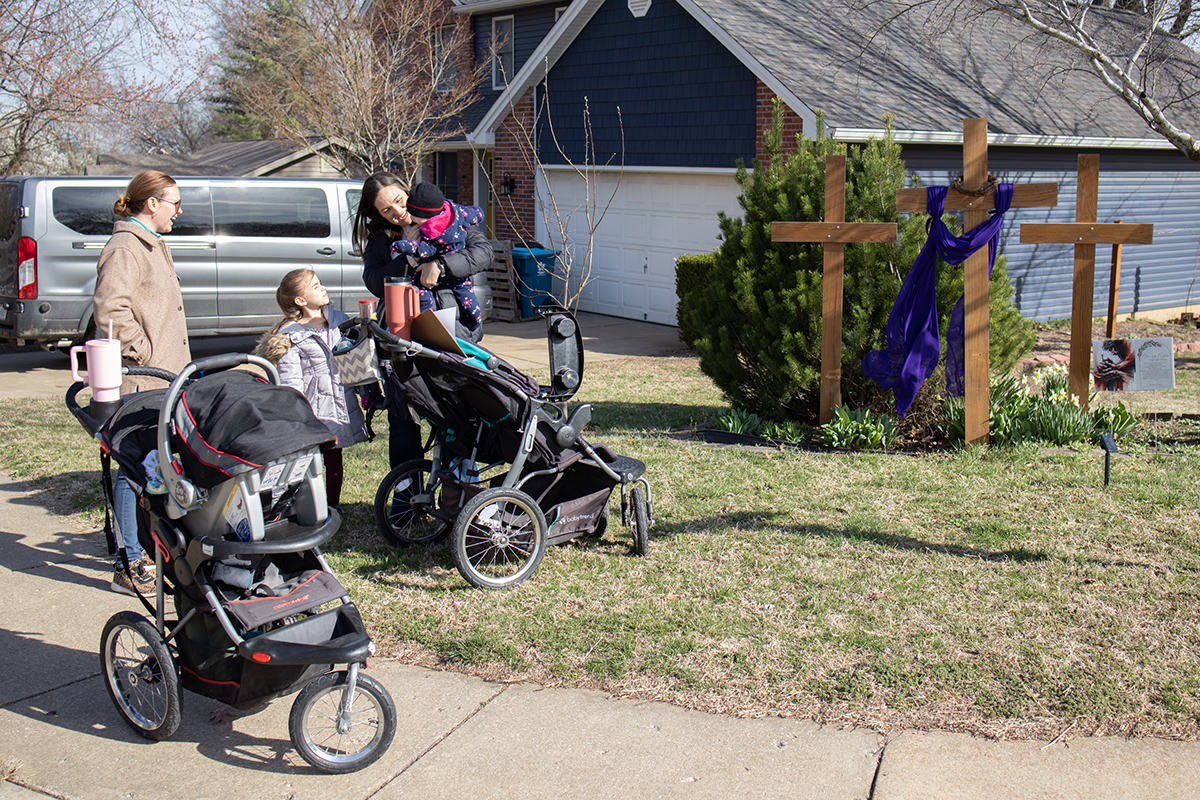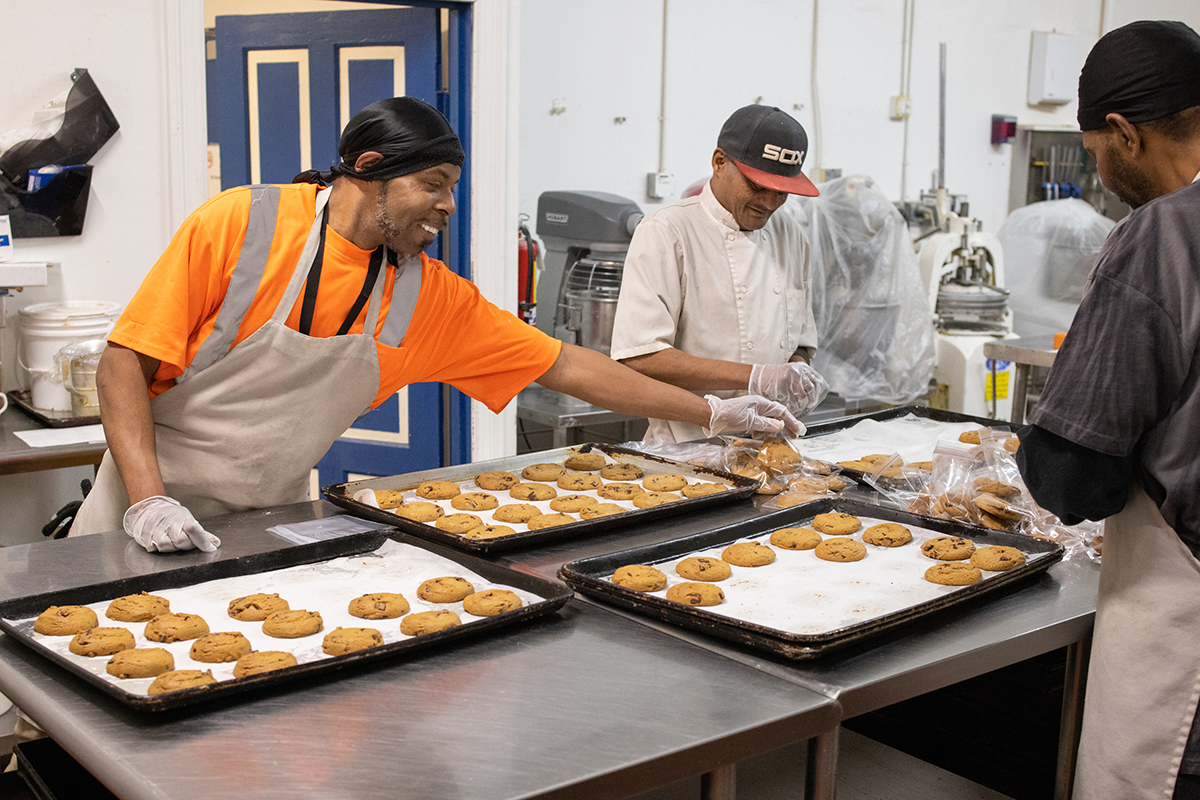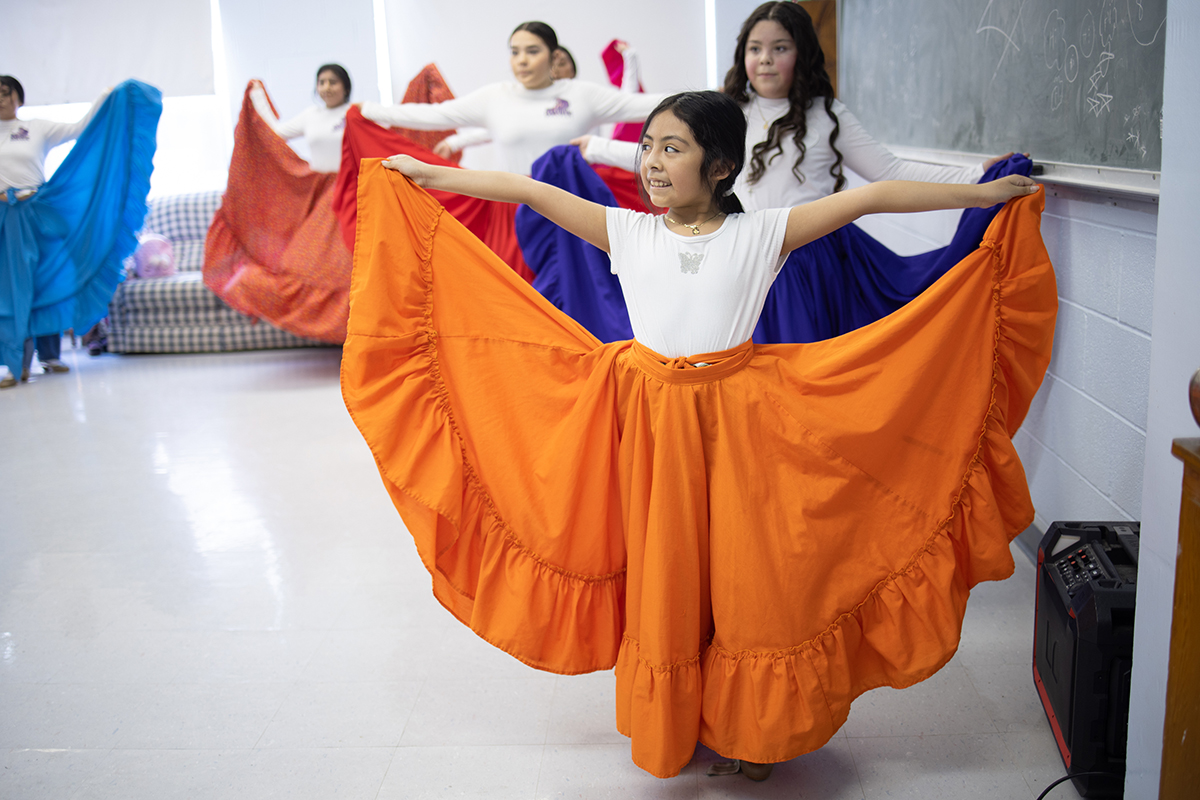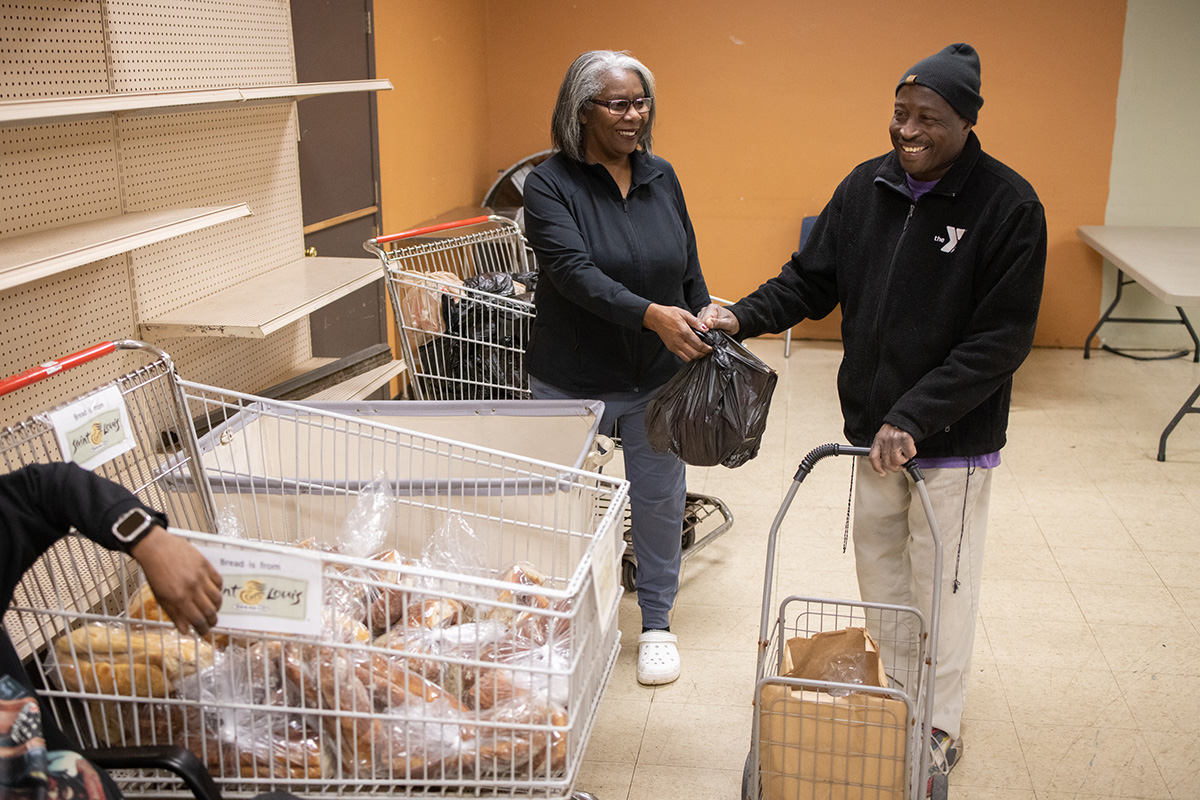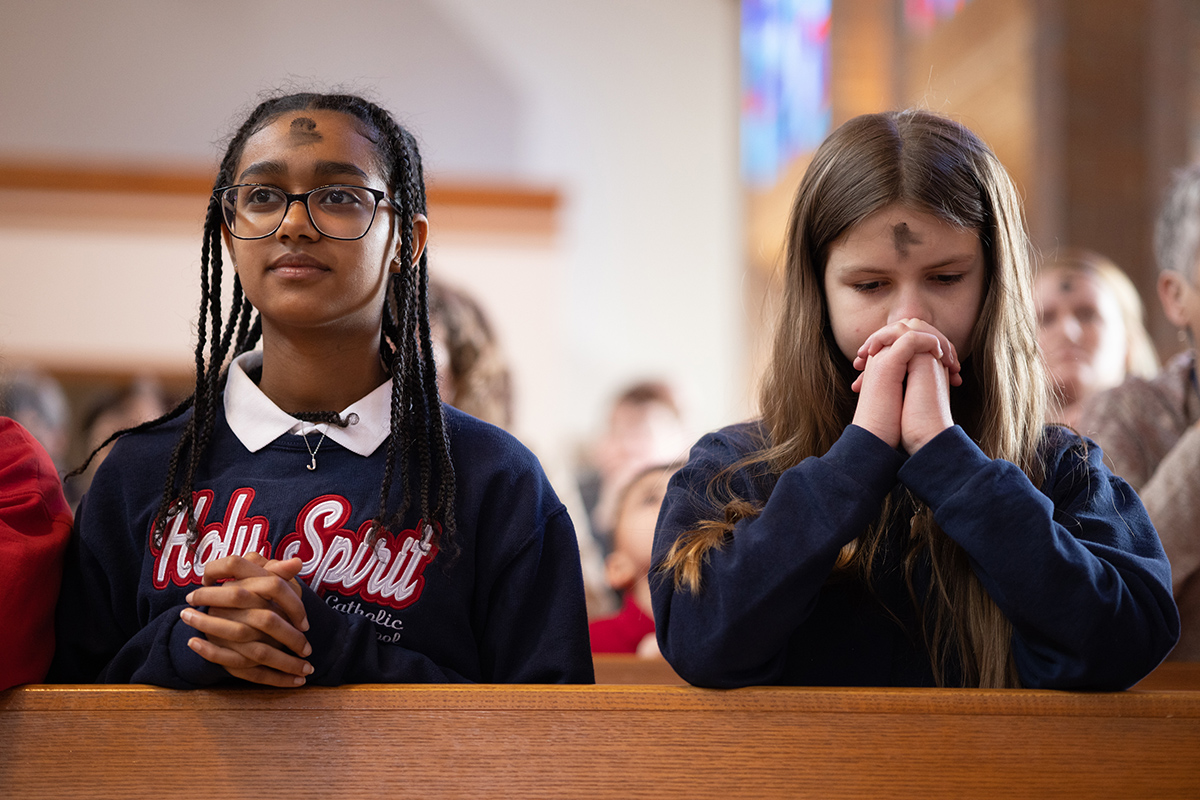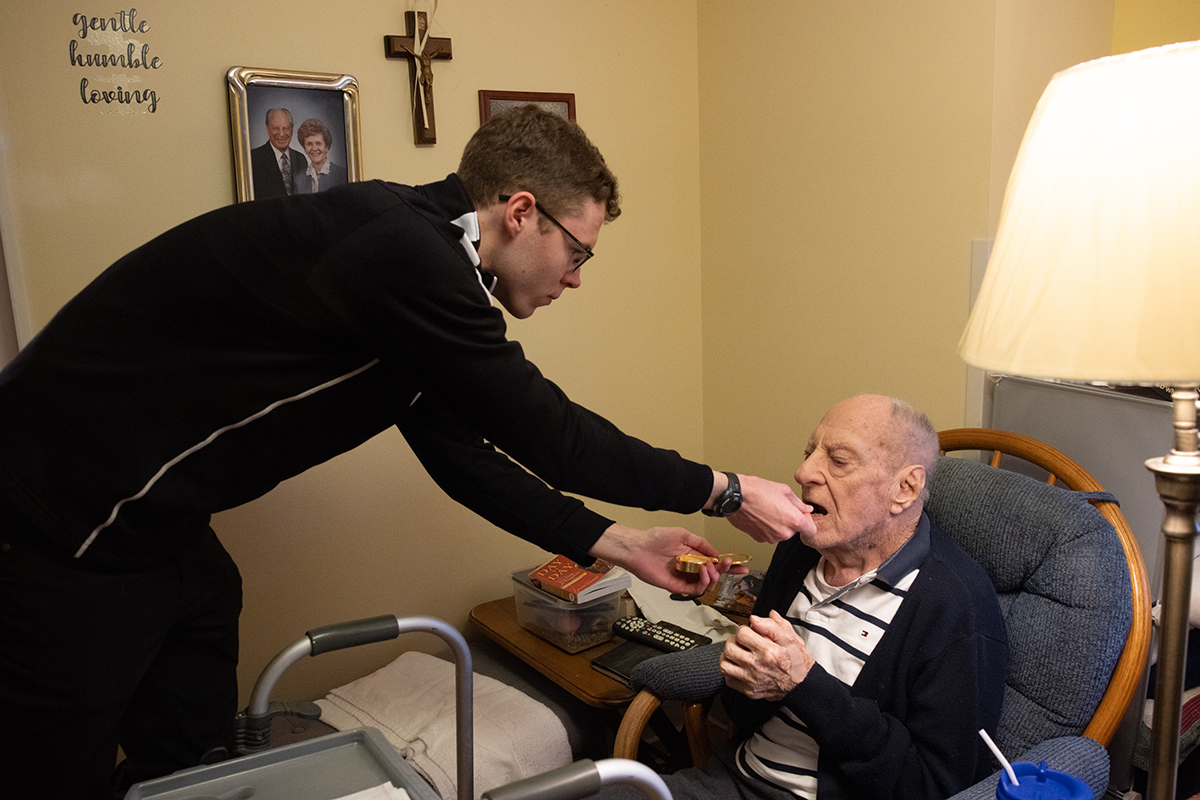Archdiocese’s efforts address issue of racism head-on
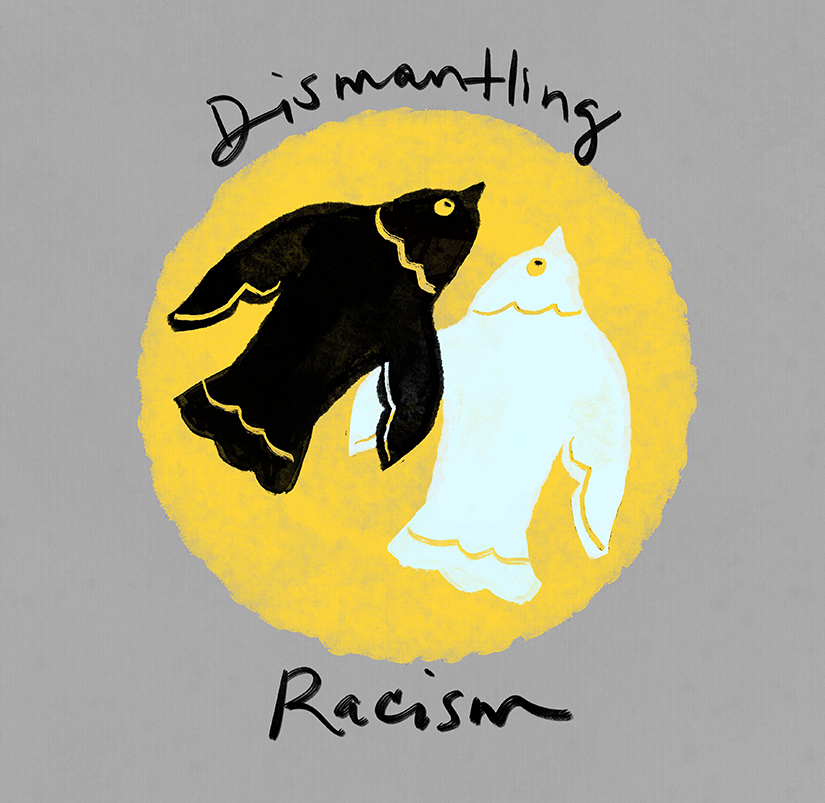
Peace and Justice Commission formed in 2014 with focus on social justice
The archdiocesan Peace and Justice Commission is one way in which the Archdiocese of St. Louis is addressing head on the issue of racism.
Archbishop Robert J. Carlson announced in 2014 that he was re-establishing an archdiocesan commission on human rights. The Peace and Justice Commission, he said, will “assist the citizens and public officials throughout all 11 counties of our archdiocese in the effort to achieve peace and justice for all.”
The commission was formed to look at these issues through the lens of the family, which the Church teaches is the basic structure of humanity. Though established in the wake of the shooting of Michael Brown and subsequent violence in Ferguson, the Peace and Justice Commission deals with issues beyond Ferguson — social justice issues such as immigration, health services and poverty. The archbishop named Marie Kenyon, former managing attorney of the Catholic Legal Assistance Ministry, as the commission’s director.
“Jesus tells us that if we receive Him as the Bread of Life, we will have His life within us,” Archbishop Carlson said in his homily at the Mass for Peace and Justice in 2015 at the Cathedral Basilica of Saint Louis, at which the members were commissioned. “He shows what this life means on the Cross, when He forgives those who killed Him.”
The archdiocese is uniquely positioned to take on the task with its long history of providing education in Catholic schools, social services through Catholic Charities of St. Louis and its eight affiliate agencies, and health care service in Catholic hospitals. Many parishes have long been active in addressing issues affecting the greater St. Louis community. The Annual Catholic Appeal provides funding for the Office of Racial Harmony, Catholic Charities and other efforts, including the Criminal Justice Ministry.
Now more than five years into its work, the commission has developed ways to address the issue of racial equity in the archdiocese, from the top down. The commission continues to find ways to address these issues and looks for opportunities to expand conversations on peace and justice.
Among the commission’s many activities has been the annual Sister Antona Ebo Social Justice Conference, which has addressed issues including death penalty, voice of the poor, human trafficking, care for God’s creation, school-to-prison pipeline, health and mental health and immigration.
In 2019, Alice Prince was hired as diversity and inclusion consultant for nine Catholic schools in the archdiocese’s North County Deanery. The position is funded through a $50,000 Beyond Sunday grant from the Roman Catholic Foundation of Eastern Missouri. Also in 2019, Joyce Jones was hired as program director of racial harmony for the archdiocese. In her role, which falls within the auspices of the archdiocesan Peace and Justice Commission, she serves as a resource to parishes in developing relationships among different ethnicities represented within the archdiocese.
In Lent of 2019, the archbishop invited clergy to preach on racism at Masses. His request was in response to several race-related issues, including Michael Brown’s death in Ferguson in 2014; clashes among pacifists, protesters and white supremacists in Charlottesville, Va.; and a 2017 not-guilty verdict in the trial of former St. Louis police officer Jason Stockley charged with first-degree murder in a shooting death.
The Walk of Trust on the afternoon of May 28, 2017, was part of the weekend-long St. Louis Pilgrimage of Trust taking place in St. Louis May 26-29. The walk was intended to be a first step toward healing deep divisions in the community that have surfaced since the unrest in Ferguson.
The idea of holding the ecumenical Pilgrimage of Trust in St. Louis came from Archbishop Carlson, who wrote a letter to the Taizé brothers, who have a charism of ecumenism and reconciliation. In inviting the Taizé Community, Archbishop Carlson underlined his concern for the need to rebuild relations between factions in the area, especially after the events in Ferguson following the police-involved shooting death in August 2014 that seemed to split the community.
Blessed Teresa of Calcutta Parish hosted a Rosary each Monday for 12 weeks, but that represented only a small part of the parish’s activities in the aftermath of Brown’s death. There was an ecumenical prayer procession from the parish to Ferguson City Hall, a pilgrimage to former slave Father August Tolton’s boyhood parish near Hannibal, Mo., monthly dinners at homes throughout the community, a three-day mission, Masses for peace and justice and more.
In addition, portraits of Servants of God Father Tolton and Sister Thea Bowman were added in the back of church, and blessed by Archbishop Carlson, who made numerous trips to Ferguson for sacramental events and otherwise. Also, Blessed Teresa school installed a Saints Wall of Fame. The diverse group of saints demonstrate the school’s diversity, inclusion and welcoming demeanor.
After the events in Ferguson, the North City Deanery Interracial Relations Committee was formed to address issues related to race and racism. In 2015, the committee co-sponsored with the Peace and Justice Commission its first walking pilgrimage in St. Louis to allow the faithful to “cross the Delmar Divide,” which has since become an annual event. The committee also has hosted a speakers’ series and summer revival, among other activities. Other parishes across the archdiocese also have been involved in anti-racism work, including listening sessions, workshops and and service to others.
In 2018, Archbishop Carlson convened a listening session at Saint Louis University as African-American Catholics shared their personal experiences of racism within the Church. The archdiocese was the first diocese to host a listening session in conjunction with the U.S. Conference of Catholic Bishops’ ad hoc Committee Against Racism. The bishops hosted the sessions with dioceses to hear firsthand from Catholics who have been harmed by acts of racism and to pray for healing, forgiveness and reconciliation. The sessions also were held in conjunction with the publication of “Open Wide Our Hearts,” the first pastoral letter on racism by the U.S. bishops since 1979.
Archbishop Carlson described the listening session as an opportunity “to open up what has been painful for so many of our members over the years, and we can begin to deal with the truth that exists.” Soon after the listening session, he celebrated a Mass at the Cathedral Basilica to seek healing for hurt caused by the Church through the sin of racism.
These are some of the steps that have been taken by Catholics in the archdiocese. Further efforts continue and are encouraged by the archdiocese.
The archdiocesan Peace and Justice Commission is one way in which the Archdiocese of St. Louis is addressing head on the issue of racism. Archbishop Robert J. Carlson announced in … Archdiocese’s efforts address issue of racism head-on
Subscribe to Read All St. Louis Review Stories
All readers receive 5 stories to read free per month. After that, readers will need to be logged in.
If you are currently receive the St. Louis Review at your home or office, please send your name and address (and subscriber id if you know it) to subscriptions@stlouisreview.com to get your login information.
If you are not currently a subscriber to the St. Louis Review, please contact subscriptions@stlouisreview.com for information on how to subscribe.

